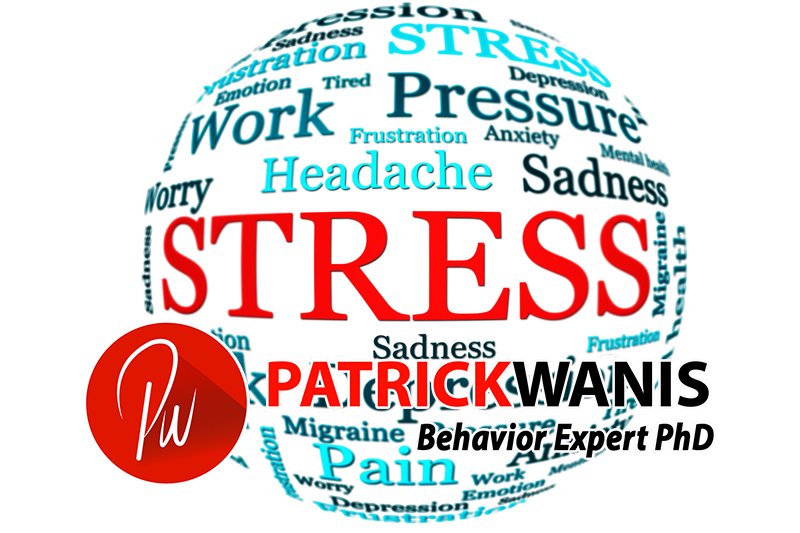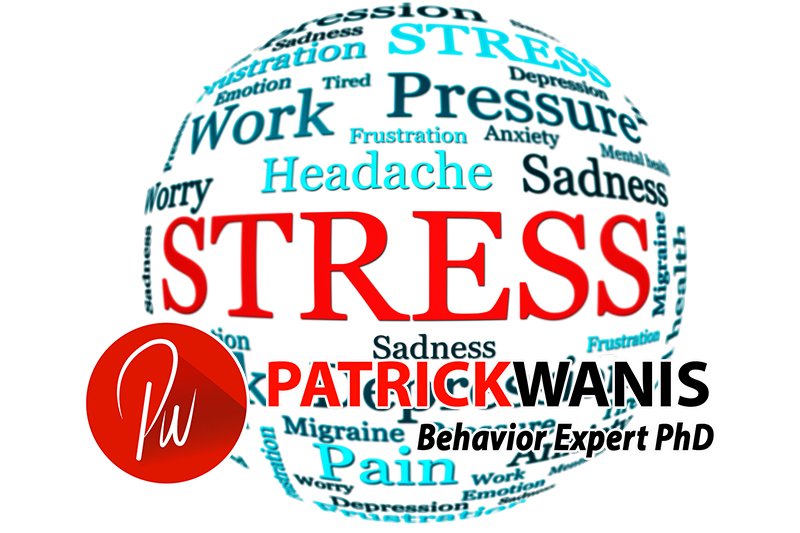
In this week’s Success Newsletter, I would like to explain why you are not crazy – it’s the stress that is driving you crazy, and I’d like to talk about the often overlooked but long list of symptoms of stress.
First a quick update:
“How stressed are you? Take the test”
Find out if your stress levels are low, moderate or extreme by taking the stress quiz.
Now, let’s talk about stress, its symptoms and effects on you.
Recently, two separate clients came to me with similar experiences – anxiety, panic attacks and intrusive thoughts and images.
Joshua is a highly successful man in his early twenties and Kim is an equally successful woman in her early thirties. They told me that this was the first time in their life that they had experienced anxiety or panic attacks. Joshua and Kim are entrepreneurs who had never previously known fear in their life.
Both Joshua and Kim had previously visited various other professionals seeking help with anxiety. Typically, the first response was to label and medicate them, and not offer any real tangible support or advice. And yes, there are times that intervention is required, particularly if the situation is critical or dangerous. However, in both cases, my clients were told that they have an organic disorder – in other words, that there is something wrong with their brain and were then instructed to take medication. Scientific evidence refutes this claim of organic neurological disorders. Listen to my interview with Dr. Peter Breggin who also adds that anti-depressants are creating long-term, permanent damage to the brain and resulting in deaths, suicides, violence and murder.
After visiting these various experts, Joshua and Kim both said almost the same thing to me, “I don’t know what’s wrong with me and I think I am crazy.”
A short review of their life and current challenges revealed the real cause of their anxiety. I explained to Joshua and Kim that anxiety and panic attacks which are fear-based almost always stem from the sense and feeling of a loss of control.
“What do you feel is out of control in your life?”
“Almost everything”, was the response.
Joshua’s parents had been suffering under the pressure of the economy and Joshua was supporting them but then he too, got hit and he could no longer help them. Soon after, his parents were forced to sell the house he grew up in. His father, once a powerful business role model for Joshua was now forced to work in a humble department store. Meanwhile, Joshua’s grandmother passed away, a close friend committed suicide, and Joshua’s girlfriend was experiencing her own identity crisis – she was lost and confused about what she wanted out of life. In a matter of a few months, Joshua’s entire emotional support system had almost been wiped out and now Joshua felt as if his life was out of control.
Kim’s story was not that different, although married a second time and now with a supportive husband, her children were not doing well at school and were experiencing emotional problems stemming from a poor relationship with their natural father. Kim’s business was also suffering and she was often verbally battling with her mother who Kim says is a hypochondriac and is always afraid for Kim. Again, just as in Joshua’s situation, Kim’s life too, felt out of control.
All of these challenges create extreme stress and lead to chronic stress and burnout. The first stage of The Stress Response is “Alarm” – the body prepares for violent muscular action (Fight-or-Flight Response) regardless of whether or not the stimulus/stressor is physical, mental or emotional. The body’s response to a stressor includes anxiety, panic, fear, racing thoughts, increased heart rate, increased blood pressure, headaches, muscle tension, gastrointestinal distress, etc. The second stage of The Stress Response is the “Adaptive/Resistance” stage where the body tries to recover from the physiological strains of the alarm stage once the stressor is eliminated. If the stressor is not eliminated, then the body stays in Alarm stage and the body enters stage three, “Exhaustion” or burnout. The longer the stress remains, the greater the symptoms and the greater the damage to the body – the mental, emotional, physical and spiritual body.
Severe or chronic stress can result in disease or death. According to the Pan American Health Organization, in the US, approximately 80% of all non-trauma deaths are caused by stress-related illnesses. These are some of the disorders believed to be stress-related:
- High blood pressure
- Strokes
- Heart attacks
- Headaches
- Diabetes mellitus
- Peptic ulcer disease
- Menstrual problems
- Musculoskeletal pain
- Increased vulnerability to infection and cancer
- Memory impairment
- Depression
- Anxiety
- Sexual difficulties
My point here is that I told both Joshua and Kim, “You are not ‘crazy’”, but you are extremely stressed. And most of us are not aware that what we are experiencing is extreme stress. We continually push our bodies in a way that we would never even push our cars and then we wonder why we are becoming ill and losing enjoyment and enthusiasm for life. Even the US army has announced that it will require that all 1.1 million of its soldiers take intensive training in emotional resiliency to head off the mental health problems, including depression, post-traumatic stress disorder and suicide that plague about one-fifth of troops returning from Afghanistan and Iraq.
The first step in recognizing when you are stressed is acknowledging the possibility that you can become stressed. The second step is to be aware of the signs and symptoms of stress, which may be mild, moderate or severe. Below is a list of the common physical signs and symptoms of stress as compiled by the Pan American Health Organization.
Common physical signs and symptoms of stress:
- Rapid heart rate
- Elevated blood pressure
- Nausea and/or vomiting
- Chest pain
- Difficulty breathing
- Fainting
- Dizziness
- Tremor
- Increased perspiration
- Headaches
- Muscle twitching
- Thirst
- Weakness
- Fatigue
- Grinding teeth
- Visual difficulties
- Hearing difficulties
- Non-specific body complaints
If you suffer from chest pain, difficulty breathing or fainting spells you need to see a medical doctor immediately.
Common cognitive signs and symptoms of stress:
- Poor concentration
- Loss of self-confidence
- Memory impairment
- Increased or decreased awareness of one’s surroundings
- Difficulty making decisions
- Poor abstract thinking
- Blaming other persons
- Difficulty identifying familiar objects or people
- Loss of time, place or person orientation
- Racing thoughts
- Disturbed thinking
- Intrusive images
Common emotional signs and symptoms of stress:
- Apprehension
- Uncertainty
- Fear
- Agitation
- Anxiety
- Severe panic
- Anger
- Feeling overwhelmed
- Irritability
- Hopelessness
- Emotional shock
- Guilt
- Grief
- Depression
- Denial
- Inappropriate emotional responses
Common behavioral signs and symptoms of stress:
- Change in activity levels
- Sleep disturbances
- Erratic movements
- Change in usual style of communication
- Loss of interest in previously pleasurable activities
- Change in eating habits
- Emotional outbursts
- Antisocial behavior
- Inappropriate use of humor
- Suspiciousness
- Hyper-arousal
- Substance use and overuse (e.g., caffeine, nicotine or alcohol use)
- Deterioration in performance effectiveness
- Accident proneness
- Nervous mannerisms (e.g., foot tapping, nail biting, teeth grinding, hair pulling, hand-wringing, etc.)
Unfortunately, many of us have become accustomed to simply accepting all of these symptoms as a part of our day-to-day life. And in turn, we try to deal with them by taking medication or other forms of substances when in fact we need to do more than just deal with these symptom, we need to deal with the causes and take action to reduce the stress.
You can also take daily action to reduce your stress with meditation, deep breathing or hypnosis. Use my Relax Now audio program or my Get Over It audio program.
If you want to learn more about stress and its effect on your health and how it causes food cravings and belly fat, read how to recognize the physiological effects of mental, emotional and physical stress on your health.
Add your comments below.
I wish you the best and remind you “Believe in yourself -You deserve the best!”
Patrick Wanis Ph.D.
Celebrity Life Coach, Human Behavior & Relationship Expert & Clinical Hypnotherapist
www.patrickwanis.com
Anointed “The Woman Expert” by WGN Chicago, Patrick Wanis PhD is a renowned Celebrity Life Coach, Human Behavior & Relationship Expert who developed SRTT therapy (Subconscious Rapid Transformation Technique) and is teaching it to other practitioners. Wanis’ clientele ranges from celebrities and CEOs to housewives and teenagers. CNN, BBC, FOX News, MSNBC & major news outlets worldwide consult Wanis for his expert insights and analysis on sexuality, human behavior and women’s issues. Wanis is the first person ever to do hypnotherapy on national TV – on the Montel Williams show.

